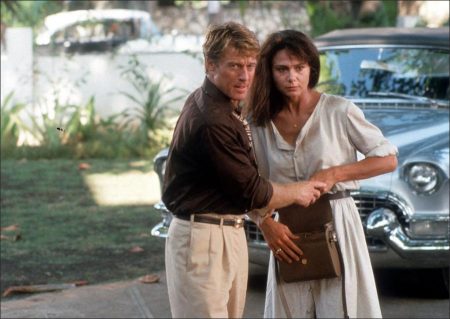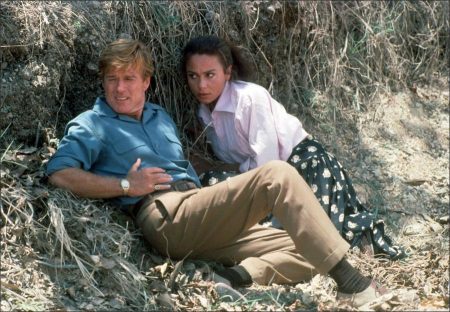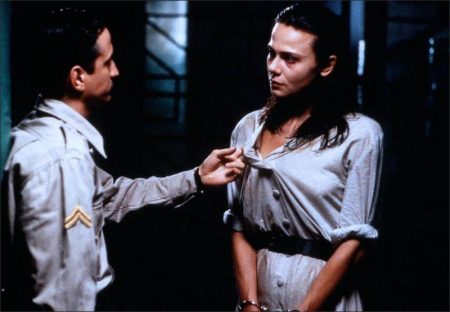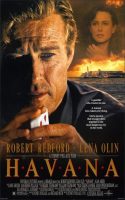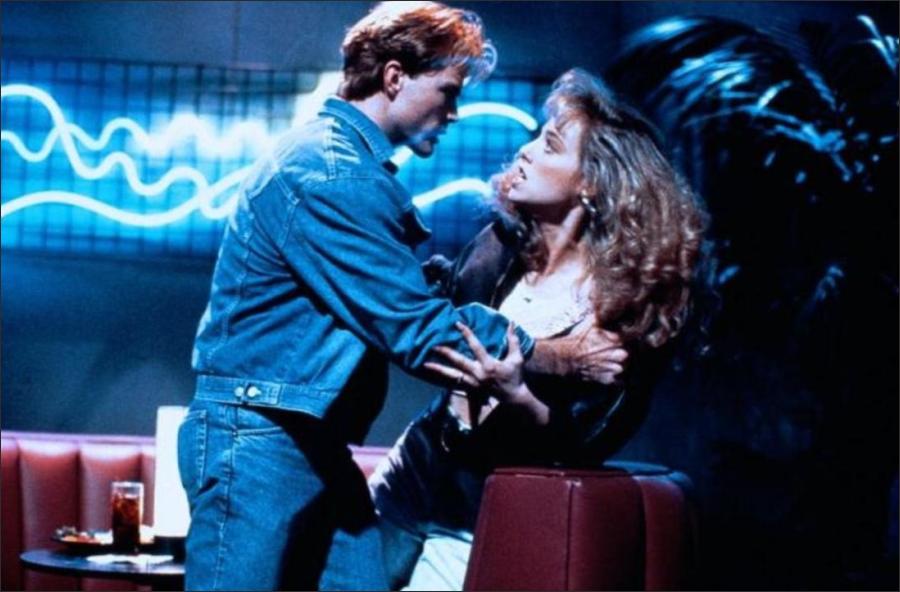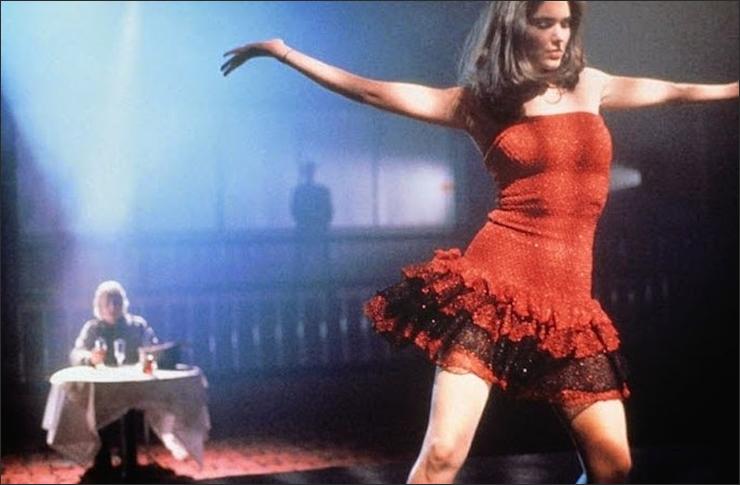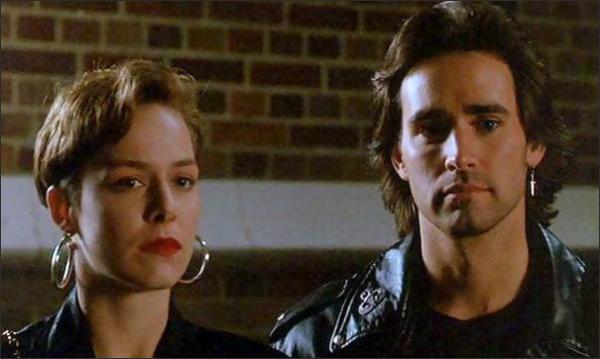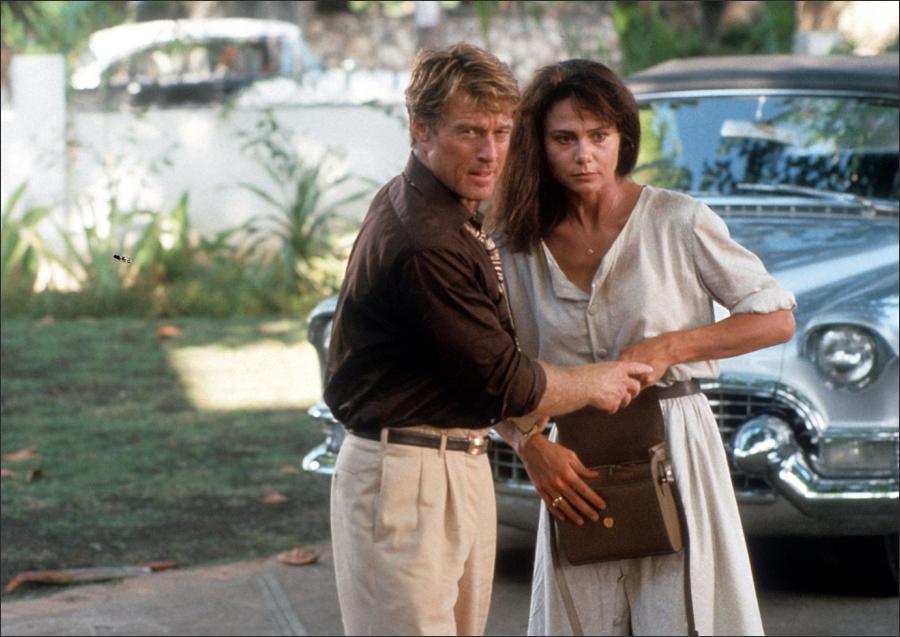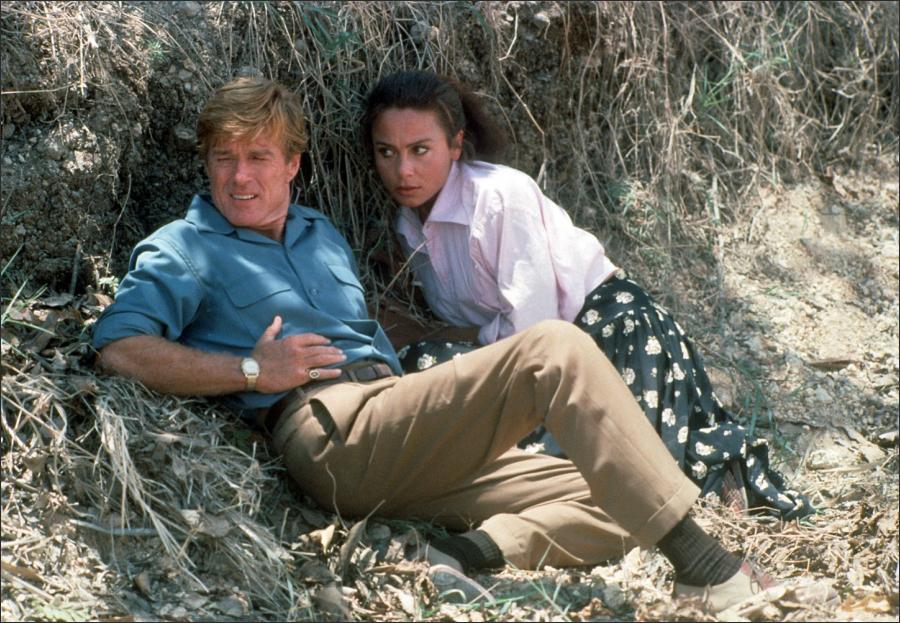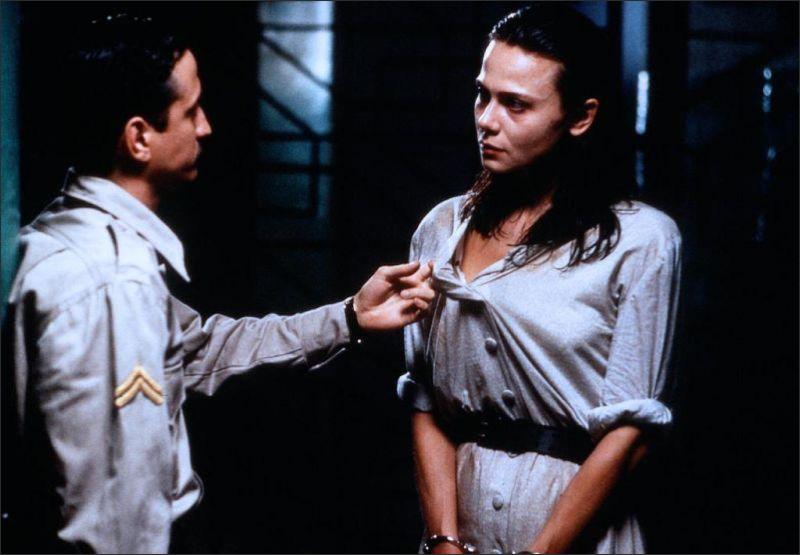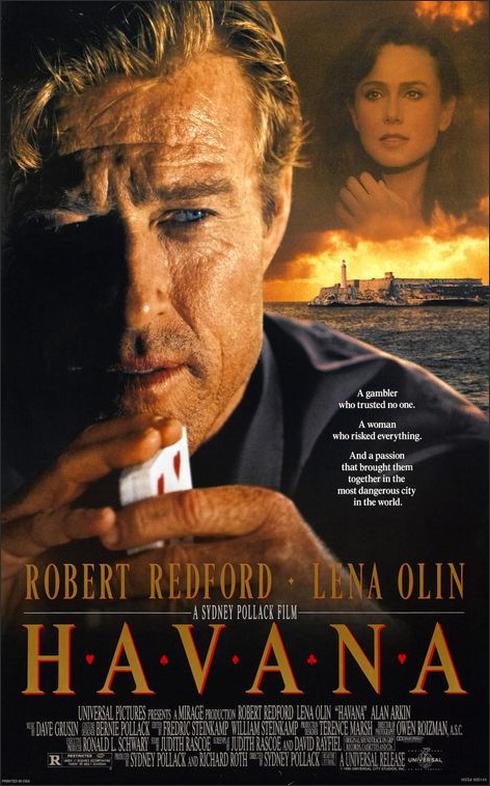Havana movie storyline. Cuba, December 1958: The professional gambler Jack visits Havana to organize a big Poker game. On the ship he meets Roberta and falls in love with her. Shortly after they arrive in Cuba, Roberta and her Cuban husband, the revolutionary Arturo, are arrested and tortured. Arturo is reported “shot while trying to escape,” but Jack manages to get Roberta free again. He can’t, however, keep her from continuing to support the revolution. Jack has to make a choice between the beautiful woman who keeps putting herself in harms way and the biggest poker game of his life; between the man he could be and the man he is.
Havana is a 1990 American drama film starring Robert Redford, Lena Olin and Raúl Juliá, directed by Sydney Pollack with music by Dave Grusin. The film’s plot concerns Jack Weil (Robert Redford), an American professional gambler who decides to visit Havana, Cuba to gamble. En route to Havana, he meets Roberta Duran (Lena Olin), the wife of a revolutionary, Arturo. Shortly after their arrival, Arturo is taken away by the secret police, and Roberta is captured and tortured. Jack frees her, but she continues to support the revolution.
Film Review for Havana
The romance of Sydney Pollack’s sprawling, atmospheric “Havana” is real, but it has almost nothing to do with love. Instead it concerns a place, the city of the title, which is hurtling toward irrevocable change and is very near the brink. The year is 1958, the time a densely eventful week between Christmas Eve and New Year’s, in the last moments before the overthrow of Fulgencio Batista’s regime. The mood, as shaded by these circumstances, is one of abandon, denial, desperate festiveness and mad risk-taking in the face of imminent danger.
Drawn across this wildly colorful canvas is a halting, equivocal love story in shades of gray. “Havana” brings together Jack Weil (Robert Redford), an inveterate gambler ready to test himself by taking the chance of a lifetime, and Bobby Duran (Lena Olin), a much younger, more mundane beauty who is linked by marriage to Fidel Castro’s cause. At her most blandly idealistic, Bobby talks of the revolutionary spirit as being “like a song people sing together.”
“You want to change the world, Bobby?” Jack counters, once the two have established a bantering conversational intimacy, if not much of a physical one. “Change me.” But in spite of Mr. Pollack’s best efforts, a screenplay (by Judith Rascoe and David Rayfiel) that devotes long and loving analysis to Jack and Bobby’s uneasy involvement, and most of all a seemingly irresistible dramatic model (namely “Casablanca”), the problems of these two little people never truly count for much more than a hill of beans.
Why not? Casting is part of the reason, and not simply because the two stars seem so noticeably incompatible. Mr. Redford, intuitive and dashing as ever in scenes that let him match wits with male actors who are his contemporaries, looks weathered and remote beside the fresh-faced Miss Olin, who for her part appears barely friendly at times. Mutual respect and admiration flow intermittently between them. But there are no real surprises, and certainly no sparks.
Mr. Redford’s great strength, especially in other films Mr. Pollack has directed (among them “Out of Africa,” “Three Days of the Condor” and “The Way We Were”), is an ability to turn diffidence into a form of flirtation, exploring the hazy area between contact and escape. But “Havana” treats him as a romantic aggressor rather than an elusive prize, so that he is in fact more magnetic during other parts of this story than he is during its love scenes. The film’s determinedly amorous moments are not helped by the screenplay, which swings unpredictably between the moodily eloquent and the merely weary. “You are seriously beautiful,” Jack must tell Bobby in one scene. “For a moment I was lost — in a sweet place, but lost,” she says much later.
Jack and Bobby meet on shipboard, where he is caught up in a card game; soon he and this beautiful stranger have joined forces to attempt a greater gamble. Bobby enlists Jack to smuggle contraband from the ship into the city, and not until he is back in Havana does Jack grasp the real purpose of this: Bobby is the wife of a prominent revolutionary leader (Raul Julia, in a hearty though uncredited appearance) and is deeply linked to the cause. By the time Jack understands, he is deeply involved in his own right, fascinated by Bobby if not by her political mission.
Meanwhile, Jack pursues other interests in Havana. He makes contact with a jaded, knowing casino operator (played with a fine wryness by Alan Arkin), and positions himself to await a big gambling score. After Bobby and her husband disappear during a military raid, Jack finds himself playing cards with their captors, perhaps even their killers (among them Tomas Milian, as a memorably cynical Cuban officer). There is, in this authentically high stakes game, an irony and forboding that give the film a welcome toughness. “These people want to bring down everything you’re here for!” exclaims one of Jack’s new poker-playing acquaintances, speaking aptly of the imminent revolution.
The glittering decadence of this culture on the verge of collapse is in fact the film’s most fascinating aspect, and Mr. Pollack has re-created it extravagantly. Filmed in the Dominican Republic, “Havana” presents its potent and expressive vision of the title city as an extension of its denizens’ state of mind.
Mr. Arkin’s casino operator is quick to point out that the all-out dissoluteness of this nearly extinct Havana, a place of gambling dens and strip joints and lazy all-night debauches (Mr. Redford has a casual tryst with two women early in the story), is somehow mutable and even portable. If Havana should cease to be the right setting for these activities, Mr. Arkin says reasonably, then the activities will simply move to another part of the world.
Among the film’s most stunning images of cataclysmic change is its New Year’s Eve stampede of diamond-decked revelers in evening clothes, who are frantically fleeing the wolf at the door. At moments like this, “Havana” truly captures the electrifying peril of its place and time. And Jack Weil, with his passion for gambling, becomes one of the rare spectators with a clear view of the historic events unfolding around him. Gamblers are drawn to the card games in Havana, he says at one point, “because they’re looking for something they can do something about.”
Havana (1990)
Directed by: Sydney Pollack
Starring: Robert Redford, Lena Olin, Alan Arkin, Tomas Milian, Daniel Davis, Tony Plana, Betsy Brantley, Lise Cutter, Carmine Caridi, Richard Portnow
Screenplay by: Judith Rascoe
Production Design by: Terence Marsh
Cinematography by: Owen Roizman
Film Editing by: Fredric Steinkamp, William Steinkamp
Costume Design by: Bernie Pollack
Set Decoration by: Steve George, Michael Seirton
Art Direction by: George Richardson
Music by: Dave Grusin
MPAA Rating: R for sensuality and strong language.
Distributed by: Universal Pictures
Release Date: December 14, 1990
Views: 248
